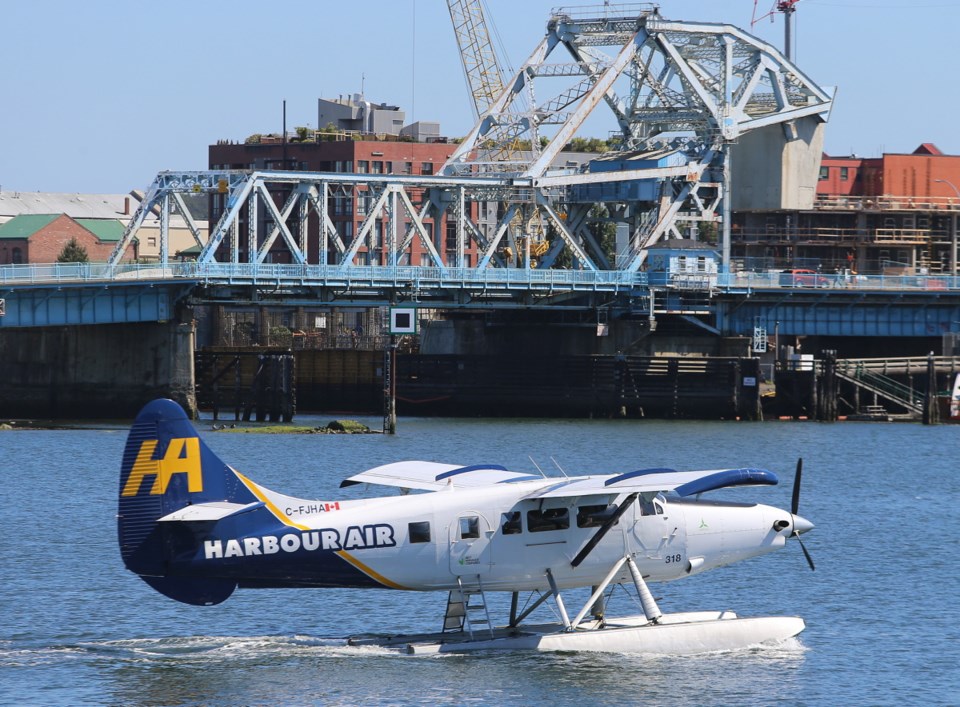Harbour Air plans to test-fly what it calls the “world’s first fully electric commercial aircraft” on Dec. 11 at Vancouver International Airport’s south terminal.
The Beaver seaplane is retrofitted with a 750 horsepower all-electric magni500 propulsion system, Harbour Air said.
The airline said that the following has been completed for the upcoming test flight:
• All batteries are installed.
• A battery-management unit is installed.
• All systems are connected and tested.
• Power is turned on and static testing is completed.
• The plane’s propeller has turned using only battery power.
• Full-power test runs on the ground have been done.
• Wings are installed.
• Flight controls are rigged.
The next steps include continuing to check systems, and testing to ensure crews are prepared.
Harbour Air’s 450 employees operate up to 300 daily flights using 53 planes in B.C. and Washington state.
The company is a pioneer in trying to get Transportation Canada and the U.S. Federal Aviation Authority to regulate electric-powered, commercial planes — something that neither currently does. Harbour Air also says it is North America’s largest and first fully carbon-neutral airline.
Its plan is to eventually have a fleet of electric seaplanes, but it may be several years before any electric planes carry passengers for extended flights.
Harbour Air CEO Greg McDougall said current electric technology is only appropriate for shorter Harbour Air flights, such as between Victoria and Vancouver, and Nanaimo and Vancouver.



